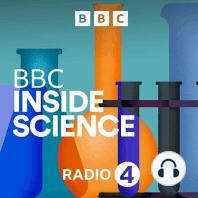28 min listen
The Origin of Celtic Culture in Britain?
ratings:
Length:
38 minutes
Released:
Dec 23, 2021
Format:
Podcast episode
Description
Victoria Gill hears of ancient DNA evidence for an unrecognised mass migration from continental Europe 3,000 years ago that may even have brought the Celtic languages with it.
In a paper in the journal Nature, an international team of researchers have gathered hundreds of middle-late Bronze Age DNA samples to identify a moment in pre-history when half the ancestry of people living in southern Britain became continental European. Sometime around 1000 BC, continental Europeans living in Kent spread rapidly into what is now England and Wales. As Prof Ian Armit tells Vic, the spread need not have been one event, and likely spanned around 200 years, but by the start of the Iron Age, Britons' DNA was 50% changed. The researchers suggest further that this may have been the time when Celtic languages spread from the continent into the islands too.
Data are starting to be published that suggest the Omicron variant of SARS CoV-2 may be a little less awful than was first feared, though it clearly is still a lethal foe. Prof Penny Moore, one of the scientists in South Africa who helped alert the world to the new virus is very tentatively relieved that death and hospitalisation numbers there and in the UK are beginning to show clinically some of the resilience that earlier strains and vaccines may have bestowed on populations. Three "Glimpses of Spike", either through prior infection and survival or vaccination and boosting seem to be accompanied by improved survival rates.
Gaia Vince has been to the Arctic Circle to talk climate change and reindeer. Sami language and culture in Lapland is under strain as climate change rapidly changes alters the predatory threats reindeer farmers face, increasing numbers of wolves and even sea-eagles that prey on young reindeer calves.
And over at UCSC in California, recordings of elephant seal pups have been played to maternal harems to ascertain how well mothers recognize their own. Caroline Casey and colleagues report in Royal Society journal Biology Letters, how they can spot their own offspring from their call alone in as little as two days after birth. But if they can do that, why then do so many lactating females feed pups that aren’t their own? Elephant seal mothers fast throughout lactation and lose a huge percentage of their own body weight, quite what the evolutionary driver is for this behaviour remains uncertain, but it can’t now be a case of mistaken identity.
Presenter Victoria Gill
Producer Alex Mansfield
Assistant Producer Emily Bird
Made in Association with The Open University
In a paper in the journal Nature, an international team of researchers have gathered hundreds of middle-late Bronze Age DNA samples to identify a moment in pre-history when half the ancestry of people living in southern Britain became continental European. Sometime around 1000 BC, continental Europeans living in Kent spread rapidly into what is now England and Wales. As Prof Ian Armit tells Vic, the spread need not have been one event, and likely spanned around 200 years, but by the start of the Iron Age, Britons' DNA was 50% changed. The researchers suggest further that this may have been the time when Celtic languages spread from the continent into the islands too.
Data are starting to be published that suggest the Omicron variant of SARS CoV-2 may be a little less awful than was first feared, though it clearly is still a lethal foe. Prof Penny Moore, one of the scientists in South Africa who helped alert the world to the new virus is very tentatively relieved that death and hospitalisation numbers there and in the UK are beginning to show clinically some of the resilience that earlier strains and vaccines may have bestowed on populations. Three "Glimpses of Spike", either through prior infection and survival or vaccination and boosting seem to be accompanied by improved survival rates.
Gaia Vince has been to the Arctic Circle to talk climate change and reindeer. Sami language and culture in Lapland is under strain as climate change rapidly changes alters the predatory threats reindeer farmers face, increasing numbers of wolves and even sea-eagles that prey on young reindeer calves.
And over at UCSC in California, recordings of elephant seal pups have been played to maternal harems to ascertain how well mothers recognize their own. Caroline Casey and colleagues report in Royal Society journal Biology Letters, how they can spot their own offspring from their call alone in as little as two days after birth. But if they can do that, why then do so many lactating females feed pups that aren’t their own? Elephant seal mothers fast throughout lactation and lose a huge percentage of their own body weight, quite what the evolutionary driver is for this behaviour remains uncertain, but it can’t now be a case of mistaken identity.
Presenter Victoria Gill
Producer Alex Mansfield
Assistant Producer Emily Bird
Made in Association with The Open University
Released:
Dec 23, 2021
Format:
Podcast episode
Titles in the series (100)
Lab-grown leather; Goal line technology; Bacteria outrage; Marine buoy: New goal line technology kicks in this month - Adam Rutherford looks at how Hawk-Eye works by BBC Inside Science
